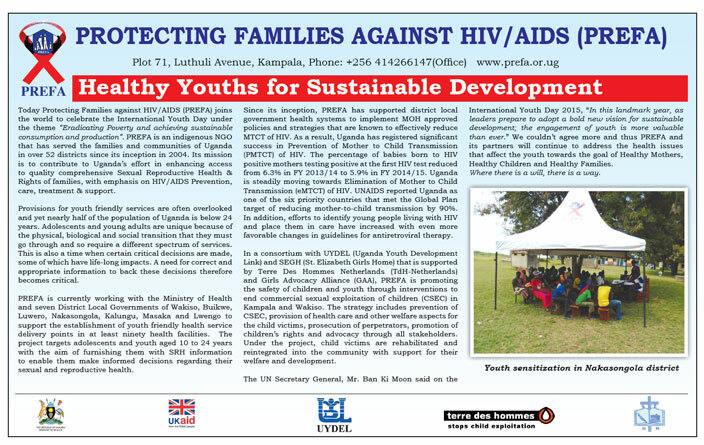Youth Day Supplement
Aug 12, 2016
Youth project on course despite challenges

By Eronie Kamukama
Following the growing number of unemployed and poor youth in Uganda, the Government launched a Youth Livelihood Programme. Based on a vision of empowering the youth through utilising their potential to create their own jobs and increase their income, the programme commenced in 2014.
According to James Ebitu, the Youth Livelihood Programme manager at the Ministry of Gender, Labour and Social Development, they have engaged 8,213 youth groups, putting the number involved at 105,419 in 112 districts. Of these, 45% are female.
Two-and-a-half years later, sh58.4b has been rolled out. Ebitu says the programme is doing well, as per the monitoring and evaluation visits and independent evaluation process by consultants from the University of California.
He says, "They support our findings and say the programme is likely to meet its objectives." Florence Nakiwala Kiyingi, the Minister of State for Youth and Children Affairs, says the programme has faced some challenges since its inception.
Mark Ochieng, the managing director of Agrosol Farm in Wakiso, says the project is marred by corruption. "It is very political. The big wigs channel cash to their areas or people of choice and leave a little money for window dressing disbursement." A number of officials have been caught misappropriating the funds. There have been reports that some local government officials have bribed youths, who end up receiving less money than expected.
Elone Natumanya, the coordinator of the Uganda Parliamentary Forum on Youth Affairs, says poor utilisation of the funds cannot go unmentioned. "There have been challenges in training on utilisation of the funds. Because the funds were released before elections, people thought it was a cash bonanza," she explains.
Natumanya adds that group formation is questionable as some came together to simply receive money, resulting into disintegration of some groups with no projects to show for the funds they received.
Ebitu says there have been instances of mismanagement but states that there must be a clear separation between youth with capacity issues and those defrauding the Government. He observes that the beneficiaries have gone through a systematic procedure to acquire the funds such as ascertaining their eligibility and selecting viable projects. The beneficiaries only receive money after they have been trained on how to utilise and account for it.
Going forward
There should be an independent audit to ascertain the viability of the programme and fix the problems. Samuel Kabuye, a youth leader of an agricultural project in Nnina Olugero Foundation on Gayaza Road, suggests distributing the funds through community-based organisations, which would be tasked with selecting and training the most appropriate beneficiaries.
Natumanya calls for youth-led programming if the project is to meet the needs of its targets. "The youth should have been part of the of planning and implementation process. If we want young people to be a part of the production value chain, there needs to be more than giving them cash," she advises.
Ebitu recommends more capacity building among the youths to reap the benefits of the programme. In light of the challenges, the ministry has come up with a strategy focusing on youth mobilisation, training, health, employment and enterprise creation. But only time will tell whether the youth will reap from the programme.
ADVERTS

